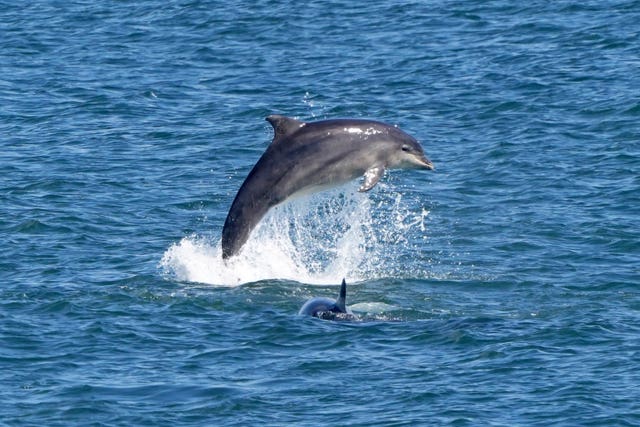
Nearly 5,000 incidents of wildlife crime were reported last year, but convictions remain at an all-time low, a report has warned.
The number of wildlife crime incidents has risen since 2020 in a post-Covid pandemic surge, according to Wildlife and Countryside Link (Link), a coalition of 86 organisations working to protect nature.
Meanwhile, the rate of wildlife crime allegations leading to convictions is lower than the average for all crimes in England and Wales, the organisation said in its annual report.
Link said: “To put it simply, if you commit a wildlife crime, you are more likely to get away with it than you are with many other crimes.

“The disappointingly low conviction figures for wildlife crimes are perhaps not surprising.
“Even if viewed purely through a human lens, wildlife crimes are not victim-free offences. Those who harm wildlife steal something precious from everyone.”
Link said it found 4,735 reported wildlife crime incidents in 2023, with 456 of those successfully prosecuted.
In 2019, it received 4,100 reported incidents, leading to 2,064 convictions.
The organisation noted that its data are collected by charities and environmental NGOs, and therefore an indication of levels rather than a complete picture.
It said volunteers have to “fill the knowledge gap” because there is not enough of a centralised system for documenting wildlife crime.
As a result, they recommended that more types of wildlife crime be made notifiable.
Notifiable offences have to be reported to the Home Office by law, which allows crime statistics to be compiled in a national database.
Link said: “Wildlife crimes are typically only haphazardly entered into the incident recording systems of individual police forces, systems which may not match up with each other and do not feed through into regional or national crime databases.”
It also recommended an investment boost to wildlife and rural crime teams in police forces that is in-line with inflation.
The group added there are no sentencing guidelines for wildlife crimes and “judges tend to err towards caution” – making custodial sentences “extremely rare” and fines often “far below the potential financial gains from the offending activity”.
The report added that there is a “national problem” of disturbing marine mammals which has increased, in part, because more people are taking part in outdoor activities.
Matt Browne, director of policy and advocacy at Link, said: “The physical harm and even death caused to our cherished seals, dolphins, whales and porpoises when they’re maliciously or carelessly disturbed by people is exactly the sort of thing that must be tackled if the UK is to have a good chance of meeting its commitment to stopping the decline of nature by 2030.”

A Cornish Site of Special Scientific Interest (SSSI) claimed more than 200 seals stampeded after people walked too near them, Link said.
In Kent, 10 watercraft were seen racing each other close to 30 resting seals and pups, which caused most of animals to panic and rush to the sea, it added.
The group said: “Such disturbances can cause significant harm, for example causing animals to abandon preferred feeding or resting areas – affecting their health.
“And it can even cause deaths, including young animals become separated from their mothers.”
There were 1,290 reported disturbances to seals, whales, dolphins and other marine mammals in 2023, which will have had an impact on “thousands” of animals, it said.
A Home Office Spokesperson said: “Wildlife crime can have devastating consequences for our natural environments and countryside communities.
“This Government is committed to reducing crime in rural areas and anyone exploiting or deliberately harming British wildlife should face the full force of the law.”


Why are you making commenting on The National only available to subscribers?
We know there are thousands of National readers who want to debate, argue and go back and forth in the comments section of our stories. We’ve got the most informed readers in Scotland, asking each other the big questions about the future of our country.
Unfortunately, though, these important debates are being spoiled by a vocal minority of trolls who aren’t really interested in the issues, try to derail the conversations, register under fake names, and post vile abuse.
So that’s why we’ve decided to make the ability to comment only available to our paying subscribers. That way, all the trolls who post abuse on our website will have to pay if they want to join the debate – and risk a permanent ban from the account that they subscribe with.
The conversation will go back to what it should be about – people who care passionately about the issues, but disagree constructively on what we should do about them. Let’s get that debate started!
Callum Baird, Editor of The National
Comments: Our rules
We want our comments to be a lively and valuable part of our community - a place where readers can debate and engage with the most important local issues. The ability to comment on our stories is a privilege, not a right, however, and that privilege may be withdrawn if it is abused or misused.
Please report any comments that break our rules.
Read the rules hereLast Updated:
Report this comment Cancel